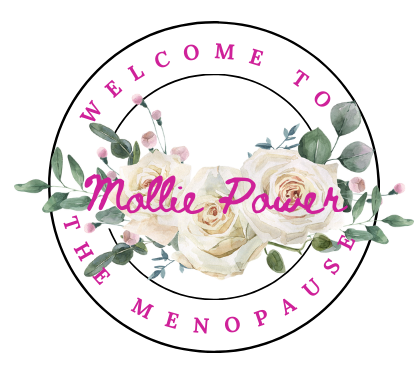
Menopause is a transformative phase in a woman’s life, marked by hormonal shifts that can influence various aspects of health. One significant aspect that often undergoes changes during menopause is the breasts. Understanding these changes and navigating through them is crucial for women looking to manage their overall well-being during this time.
During menopause, a woman’s body experiences a decline in oestrogen and progesterone levels. These hormonal fluctuations can affect breast tissue, leading to changes such as decreased breast density and increased fat composition. Understanding the science behind these alterations is key to addressing related concerns.
Now, it is not just oestrogen and progesterone that you have to think about. These hormones are like conductors in an orchestra, each cueing different processes in your body. When the levels drop, it is not only the music that changes, but your breast tissue also responds too, potentially leading to a less dense and more fatty composition. This is not just about your body’s internal changes; it is also about staying on top of these transformations so you can adjust your health checklist accordingly.
Knowledge here is power. When you know what is happening inside, you can take the reins and navigate through any potential discomfort or concerns. I am here to help you understand that these fluctuations can cause changes in breast size and shape; many women notice a decrease in breast fullness and firmness during this time.
This brings us to the next chapter of your menopausal journey. It is not only about identifying the changes but also understanding how these transformations may affect your daily life and mammographic readings.
Charting the Menopausal Map: Recognising Common Breast Changes
You are going to find out about the many ways your breasts might change during this significant phase of your life. Hormonal fluctuations can lead to an evolution in both breast size and shape during menopause. a natural consequence of the hormonal roller coaster.
Not only can the dimensions of your breasts alter, but so can their sensitivity. Do not worry too much about the occasional tenderness or increased sensitivity; it is a common flag raised by your body to signify hormonal imbalances. I am here to help you understand the difference between ordinary menopausal changes and signs that might call for a deeper look.
Breast changes during menopause are common and can manifest in several ways. Here are some examples:
Decreased Breast Density:
As oestrogen levels decline during menopause, breast tissue tends to become less dense. This can result in a reduction in firmness and fullness.
Changes in Size and Shape:
Many women experience alterations in breast size and shape. Breasts may lose some of their earlier fullness, and a subtle sagging or drooping might occur.
Increased Fat Composition:
With hormonal changes, there is often an increase in fat content within the breasts. This contributes to changes in breast appearance, as the ratio of glandular tissue to fat shifts.
Tenderness and Sensitivity:
Hormonal fluctuations can lead to increased tenderness or sensitivity in the breasts. Some women may find that their breasts feel more tender or sore than usual.
Mammographic Changes:
Firstly, you have mammograms to keep an eye out for breast cancer. Secondly, when breast composition changes, the mammogram’s effectiveness can be influenced. It is about discerning the subtle difference between typical menopausal breast tissue and something that may need a medical professional’s attention, it is important for women to continue with regular breast screenings.
Changes in Nipple Appearance:
The appearance of the nipples may undergo changes during menopause. This can include alterations in colour, size, or shape.
Prominence of Veins:
As breast tissue changes, the veins in the breast may become more noticeable. This is often due to shifts in fat distribution and reduced breast density.
So, let us move beyond just the common occurrences. You can always adjust how you manage your breast health, particularly as you step into the next section. Up next, I will guide you through managing your breast health during menopause with practical solutions and strategies.
Sailing Through: Initiative-taking Breast Health Management in Menopause

This is not just about adapting to changes; it is also about safeguarding your health for the future. You can always adjust your strategy ahead, but starting with a solid foundation is key.
Your first attempt at regular breast self-exams might feel awkward, but it is a crucial step in early detection of any abnormalities. Choose a day that resonates with you—maybe a few days after your period ends (Peri Menopause) when your breasts are less likely to be tender—and make it a monthly ritual. Accustom yourself to the normal look and feel of your breasts so you can spot any changes quickly.
Do not worry too much about perfection in your diet and exercise routine; it is more important to maintain balance. A diet rich in fruits, vegetables, and lean proteins can support overall health, while regular exercise like walking, swimming, or yoga can help manage menopausal symptoms and support your breast health.
Additionally, staying informed and taking initiative with regular health check-ups and mammograms will anchor you as you navigate these new waters. After menopause, it is essential to continue these screenings, as changes in breast tissue can affect mammogram results. Discussing the best timeline for these with your healthcare provider ensures you are following a strategy tailored to your personal history and risk factors.
It is important to note that while these changes are common, every woman’s experience is unique. Additionally, any new or unusual changes in the breasts calls for discussion with a healthcare professional to rule out any potential health concerns. Regular breast self-exams and screenings are crucial for supporting breast health during and after menopause.
I really hope that you approach this transformative phase with the confidence and knowledge that you are taking the best possible care of yourself.
Your Story Matters! Share Your Experience Welcome To The Menopause family,
We are all about sharing stories here, and we want to hear yours! After diving into our latest post, we’re eager to know how it resonated with you. Did you relate to a particular point? Maybe you have your unique take on the topic?
Let’s make this space a hub for diverse experiences. Drop a comment below and let’s spark a conversation. Your voice matters, and we can’t wait to read your insights!
Cheers to sharing and connecting!
